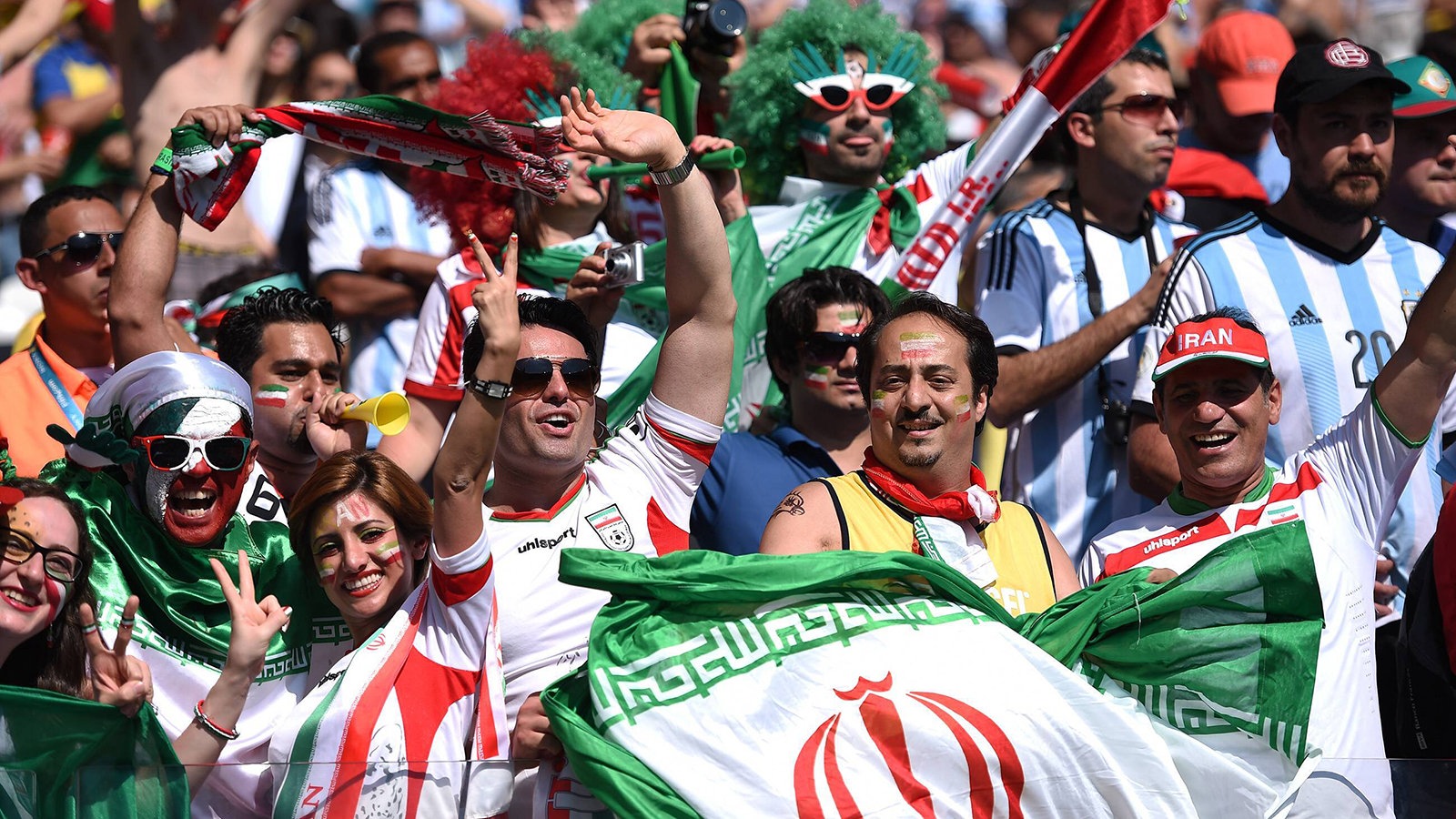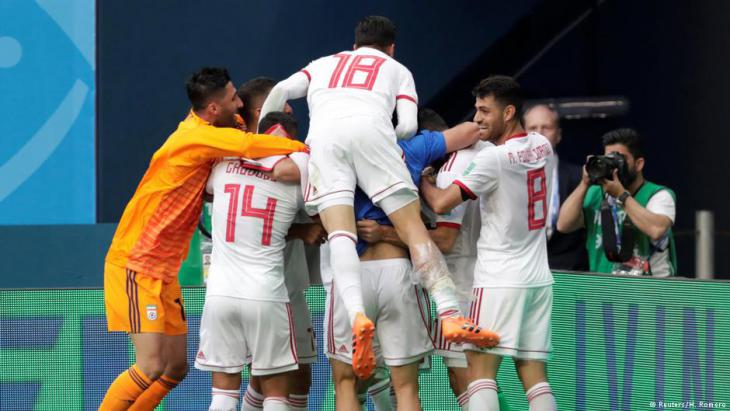Battling on several fronts

"Team Melli", as the Iranian national soccer squad is called in the Persian language, qualified back in May 2017 alongside Russia and Brazil as one of the first three of a total of 32 teams for the 2018 World Cup.
Participation in the World Cup is an incomparable highlight for this nation, recently dogged yet again by negative headlines due to global political events. It is hoped that football can fix something that international diplomacy has thus far not managed to achieve, namely regain international recognition for the nation as a full and accepted member of the global community.
Most Iranians are mad about soccer and have been following the 2018 World Cup with a passion. They hope that despite the challenging group constellation with opponents Morocco, Spain and Portugal, the team will survive the group stage and make it into the knock-out phase of the competition for the first time. But domestic barriers as well as international sanctions hover like a perpetual spectre of doom over "Team Melli" and its fans.
Ban on gatherings instead of public viewing
It may sound incredible, but the reality is bitter: in advance of the World Cup, rulers in Iran imposed a ban on gatherings in all places during matches contested by their own national team. Whether in a restaurants, cafes or on the street: public communal viewing of matches involving Iran on television or projector screens is forbidden.
As the public order official responsible for security in Tehran, Mohsen Hamedani, announced to domestic media: "Investigations by city authorities came to the conclusion that broadcasting World Cup matches in public parks and other grounds is inappropriate." He went on to say that "this decision was taken in consideration of cultural and social aspects."
In view of recent sporadic public protests and rallies against the theocratic regime, it is more than doubtful whether the football-crazy Iranians will respect this ban, which is untenable under Iranian law.

No shoes for the national squad
Furthermore, foreign-policy developments have presented the Iranian squad with an unusual problem. Immediately prior to the start of the World Cup group stage, sportswear giant Nike announced it would no longer be providing cleats to the Iranian national team. The U.S. company said its decision was due to the renewed imposition of U.S. economic sanctions against Iran and Washington's withdrawal from the international nuclear deal with Tehran.
This surprise move was met with furious indignation by Iran's national coach Carlos Queiroz, himself a Portuguese national: "The players get used to their kit. It's unacceptable to change this a week before important matches like these. Nike should apologise to the Iranians," he ranted.
Iranian national players who play in foreign clubs were forced to ask their team mates for help – first and foremost Saman Ghoddous, who grew up in Sweden and plays there for the club Ostersunds FK. Others had to purchase the necessary shoes in Russian sports stores at the last minute.
Football as outlet for freedom and democratisation
Yet, despite domestic and foreign restrictions, the mega event that is the 2018 World Cup has got football-crazy Iranians all over the world hooked. Thatʹs because soccer means so much more to them than just sport and diversion.
After the national team qualified for the 1998 Soccer World Cup, Iranian football played a significant role in the country's democracy movement. At that time, hundreds of thousands of Iranians gathered on the streets of the nation experienced a revival of their national sense of self-worth, held in check ever since the Islamic Revolution. Ever since, the theocracy has taken a dim view of any public gatherings connected to sport. After all, events of this kind frequently become a vehicle for the expression of public displeasure that is supressed in other areas of society.
In these currently turbulent times for Iran, both nationally and internationally, the World Cup is providing an exceptional platform for further social developments. Watch this space.
Farid Ashrafian
© Iran Journal 2018
Translated from the German by Nina Coon
